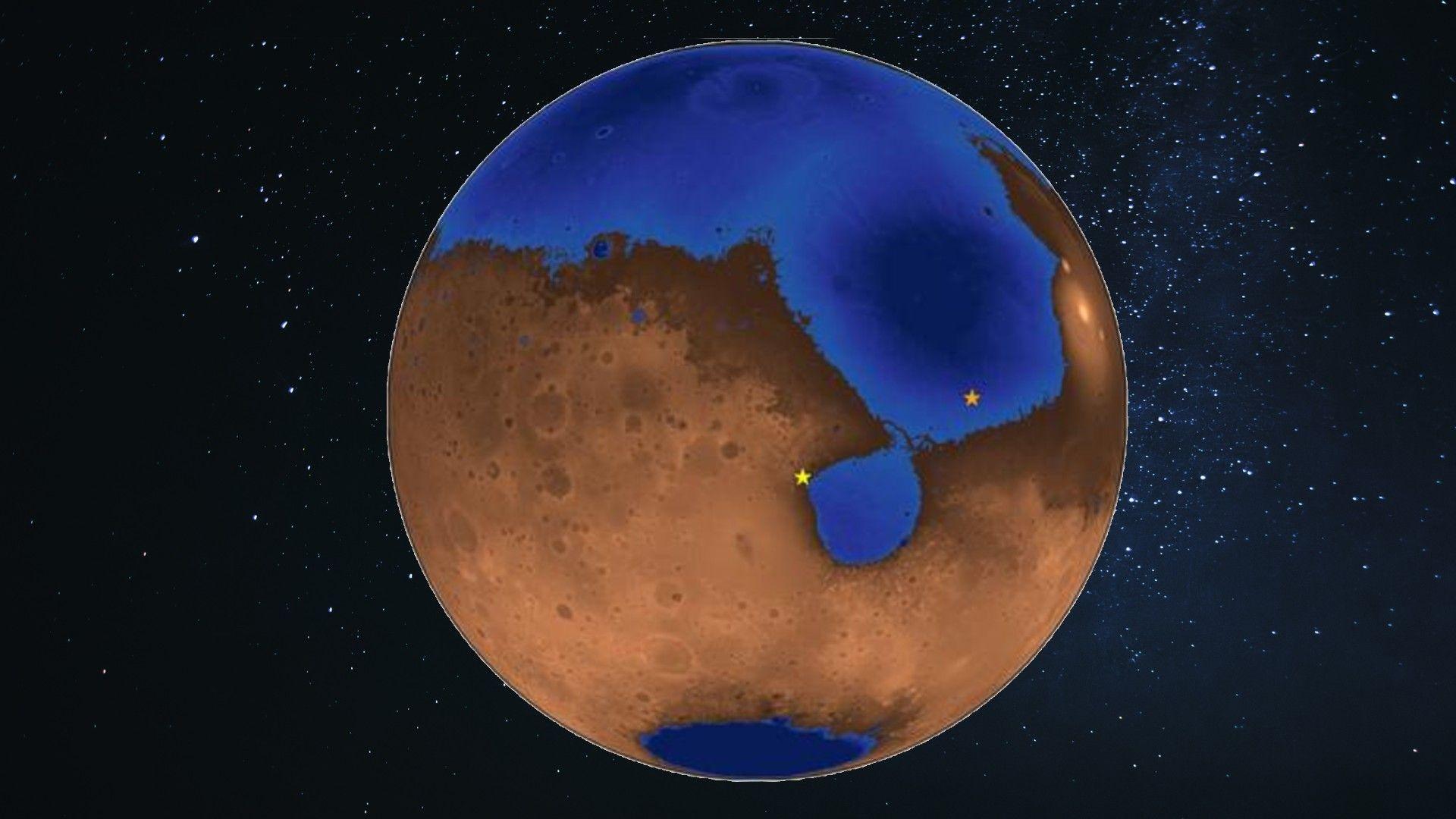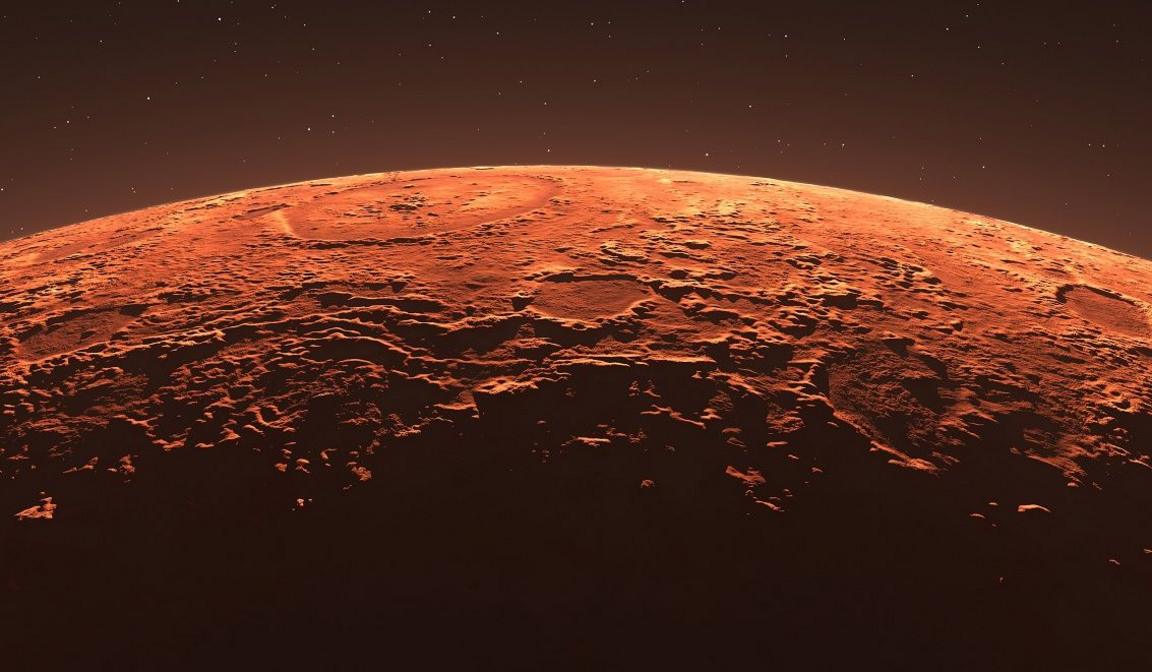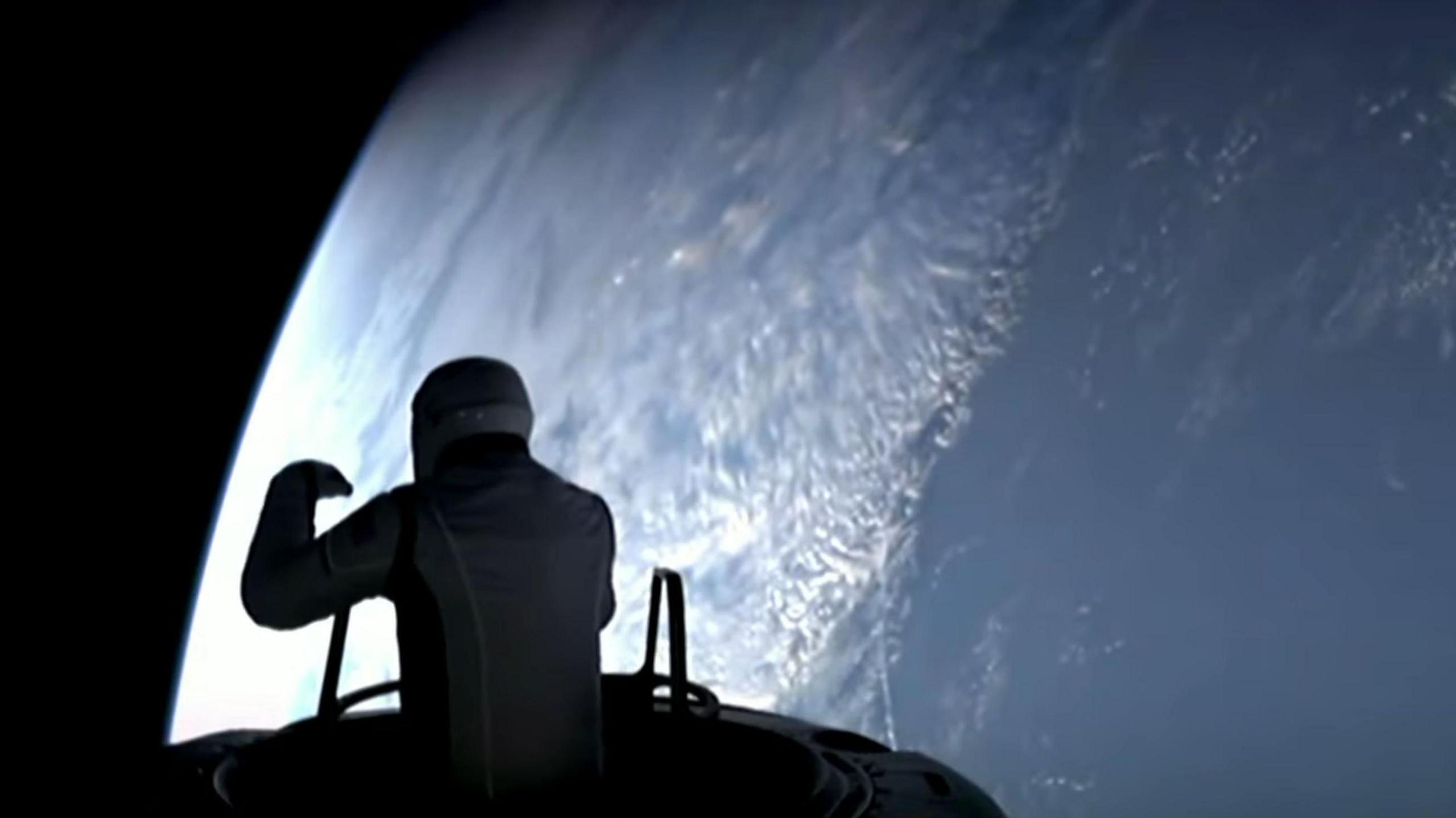Mars was once home to sandy beaches like Earth, new study suggests

Researchers believe water may have once existed on Mars' surface when the climate was much warmer
- Published
The mysteries of the planets in our solar system have fascinated scientists for years.
Now, a new discovery could draw us one step closer to finding out whether life once existed on Mars.
A Chinese rover that landed on the red planet in 2021 has found evidence of underground beaches in an area where an ancient sea is believed to have existed long ago.
It provides more evidence that the planet had a large ocean in the past.
More space stories
Planetary parade: What is it and how can you see it?
- Published21 February
Scottish rocket aims for Shetland space test this year
- Published17 February
Astronaut stuck in space goes for a walk... outside
- Published17 January
The rover explored the planet for a year between May 2021 and May 2022.
It travelled across an area thought to be an ancient shoreline which existed roughly four billion years ago when Mars had a much warmer climate.
The rover detected underground objects on the red planet, with images showing thick layers of material which looked like sand.
These layers were sloped in a direction similar to beaches on Earth where the sea meets the land just below the water.
"The structures don't look like sand dunes. They don't look like an impact crater. They don't look like lava flows. That's when we started thinking about oceans," said Michael Manga who is a professor of earth and planetary science at the University of California, Berkeley.

The surface of Mars is quite different today compared to what scientists believe it looked like billions of years ago
Researchers say the existence of beaches suggests Mars once had a large, ice-free ocean and possibly life, although the planet is too cold today for water to flow as a liquid.
"The beaches would have been formed by similar processes to those on Earth - waves and tides," said Hai Liu who is one of team members who worked on the study.
"Such oceans would have profoundly influenced Mars' climate, shaped its landscape and created environments potentially suitable for life to emerge and thrive."
More like this
- Published21 December 2024

- Published6 June 2024

- Published12 September 2024

